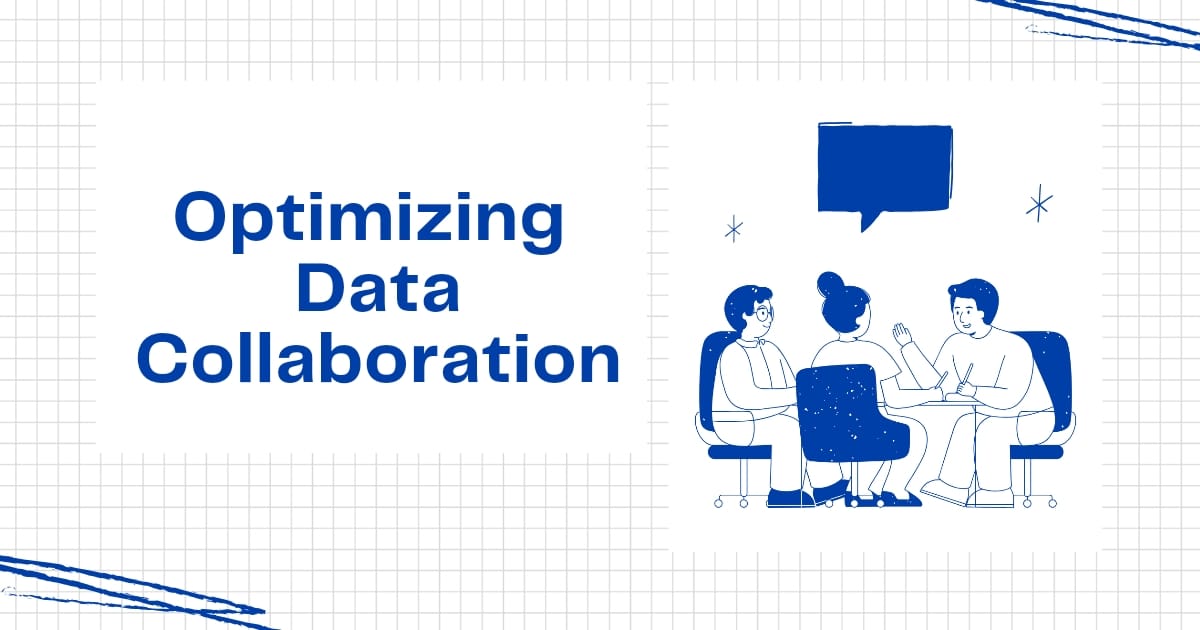Key Takeaways
- Understand the significance of data collaboration in modern business strategy.
- Learn about various best practices to ensure effective data sharing.
- Gain insights into the latest technologies facilitating secure data collaboration.
Introduction to Data Collaboration
In today’s interconnected world, data collaboration has become a cornerstone of successful business operations. By sharing data effectively across various departments and with external partners, companies can drive innovation, improve efficiency, and achieve better outcomes. Data collaboration helps businesses to navigate complex environments by combining resources and knowledge. With advanced technologies, it has become possible to collaborate on sensitive data without compromising security. Ensuring data privacy while sharing is now achievable with specialized tools, making data sharing not just a buzzword but a practical strategy for growth. Allowing various teams to use common data can help organizations dismantle silos and promote a more united and creative work atmosphere.
The Importance of Data Collaboration
Data collaboration is not just a modern trend but a vital element for organizations aiming to stay competitive. Utilizing tools such as an audience insights tool helps businesses aggregate and analyze data securely, enhancing collective intelligence for more informed decision-making and new opportunities. According to recent research, companies that engage in collaborative data practices are more likely to outperform their peers in terms of revenue growth and market positioning. Furthermore, data collaboration enhances customer experiences and streamlines operations. This culture of sharing and utilizing collective data enables companies to uncover insights that would be difficult to achieve in isolation. Moreover, collaborative data practices lead to better alignment between departments and external partners, ensuring that everyone is working towards the same goals. By creating a transparent environment, data collaboration fosters trust and accountability, driving more strategic and effective outcomes. In a world where data is often referred to as the new oil, effective data collaboration acts as a refinery that transforms raw data into valuable insights, propelling businesses to new heights.
Best Practices for Effective Data Collaboration
To maximize the benefits of data collaboration, it’s crucial to follow best practices that foster a culture of sharing and trust. Some key strategies include:
- Establishing Clear Objectives: Ensure that all stakeholders understand the goals of data collaboration and how it aligns with the company’s objectives. Clear communication of intentions helps to unify efforts and build trust among participants. When objectives are transparent, teams are more motivated to contribute valuable insights.
- Ensuring Data Quality: Maintain high standards for data accuracy, consistency, and timeliness to build trust among collaborators. Quality data is the foundation upon which effective collaboration is built. Without reliable data, the risk of making flawed decisions increases, potentially jeopardizing collaboration efforts.
- Data Governance: Implement robust data governance policies to safeguard sensitive information and comply with regulations. Effective governance ensures that data is used responsibly and ethically. Clear policies also delineate roles and responsibilities, providing a framework for accountability.
- Training and Education: Regularly train employees on data management best practices and the importance of data collaboration. Education fosters a data-savvy culture that values and utilizes shared insights. By empowering employees with knowledge, organizations can enhance their data utilization capabilities exponentially.
- Utilizing Collaborative Tools: Invest in modern tools that facilitate secure data sharing and real-time collaboration among teams. Tools such as cloud-based data clean rooms can significantly enhance the efficiency and security of data-sharing processes. These technologies not only streamline cooperation but also ensure that sensitive data remains protected.
Technological Solutions for Data Sharing
With the advent of advanced technologies, data sharing has become more secure and efficient. Platforms such as cloud-based data clean rooms offer a safe environment for multiple parties to collaborate on data without exposing sensitive information. Moreover, tools like Data Sharing Technologies ensure that collaborators can work seamlessly while maintaining data integrity and confidentiality.
These tools enable businesses to overcome traditional barriers associated with data silos and proprietary systems. By leveraging technological solutions, companies can securely share and access valuable data, thereby improving their decision-making processes and driving innovation. The ability to collaborate in real time allows teams to respond to changes rapidly and capitalize on emerging opportunities. This agility can be a significant competitive advantage in fast-paced industries.
Real-World Applications and Case Studies
Many organizations have successfully implemented data collaboration strategies. For instance, the partnership between healthcare providers and researchers to combat the COVID-19 pandemic showcased the power of data collaboration. By sharing patient data in a privacy-compliant manner, researchers were able to accelerate the development of vaccines and treatments. This collaborative effort not only saved lives but also demonstrated the scalability of data collaboration in crises.
Another example is the retail industry’s use of data collaboration to enhance customer insights, streamline supply chains, and optimize inventory management. Retailers share data with suppliers to align production with demand, reducing waste and ensuring product availability. These examples demonstrate how data cooperation can lead to significant changes in different sectors. Through combining resources and knowledge, organizations can accomplish results that would be impossible to achieve alone, highlighting the practical advantages of working together on data practices.
The Future of Data Collaboration
Looking ahead, the future of data collaboration is promising, with numerous possibilities on the horizon. Emerging technologies like blockchain and artificial intelligence will further revolutionize the way organizations collaborate on data. As more businesses realize the value of data collaboration, we expect to see increased investment in tools and platforms that facilitate secure and efficient data sharing. According to recent news, Future Trends in Data Collaboration suggests that these advancements will drive more collaborative, innovative, and data-driven business environments.
In conclusion, optimizing data collaboration is critical for modern businesses aiming to stay competitive and innovative. By following best practices and leveraging advanced technologies, organizations can unlock the full potential of their data and achieve transformative outcomes. As the landscape of data collaboration continues to evolve, businesses that embrace these changes will be well-positioned to thrive in the digital age.
For more insightful article visit: dropship insight.

